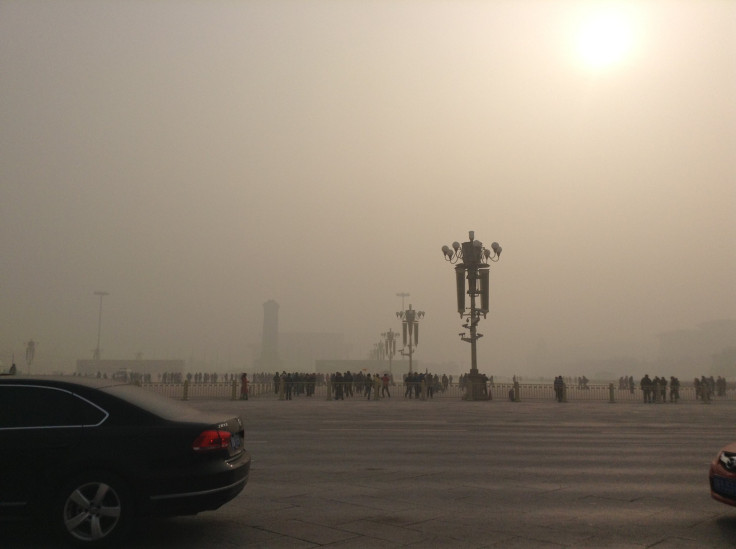Airpocalypse In China: Air Pollution Linked to 1.2M Deaths, Study Says

A new study suggests that China’s well-documented air pollution problems, known colloquially as its “airpocalypse,” are killing some of its citizens and sending others running to the border.
A new study by the Health Effects Institute suggests that air pollution contributed to the early deaths of 1.2 million Chinese citizens in 2010, Quartz reports. According to researchers, the tainted air, or “ambient particulate matter pollution," was the fourth-leading risk father for deaths in China in 2010. Only poor diet, high blood pressure and smoking were more deadly, Quartz reports.
Quartz suggests that, as frightening as those 2010 statistics are, China’s problem is only going to get worse. According to January 2012 readings from the U.S. Embassy in Beijing, the air contained record levels of dangerous PM2.5 particulates, with the measurement of 291 far exceeding the World Health Organization’s “unsafe” level of 25, CBS News reports.
The region’s rapidly increasing dependency on automobiles and coal consumption will exacerbate the problem. A study by Deutsche Bank predicts that increases in car ownership and coal use will cause China’s pollution levels to climb 70 percent higher by 2025, according to Quartz.
As reports about China’s “airpocalypse” continue to trickle out, the massive nation is finding it increasingly difficult to attract international employees, especially those with young children, Quartz reports. In addition, the Financial Times reports that the expatriates, particularly those in Beijing, are fleeing in droves rather than risk their health.
Any attempt to solve the growing air pollution crisis is sure to meet with resistance from China’s influential state-backed oil companies. For instance, Sinopec and China National Petroleum Corp., or CNPC, two especially powerful companies, have managed to avoid providing the funds necessary for the production of cleaner fuels, Reuters reports. As long as the Chinese government continues to place limits on national fuel prices, its oil companies will resist programs that will increase their overhead.
The clash between oil interests and environmental advocates has been a source of significant friction within the Chinese government, according to the New York Times. However, recent efforts to set fuel prices based on the respective costs of major oil companies may help to ease the tension.
Quartz suggests that these measures will encourage companies like Sinopec and CNPC to contribute to cleaner production methods, as they’ll no longer be hampered by reduced profits. With reduced admissions and expensive fuel to dissuade potential car owners, China may be able to reverse its impending airpocalypse.
© Copyright IBTimes 2024. All rights reserved.





















